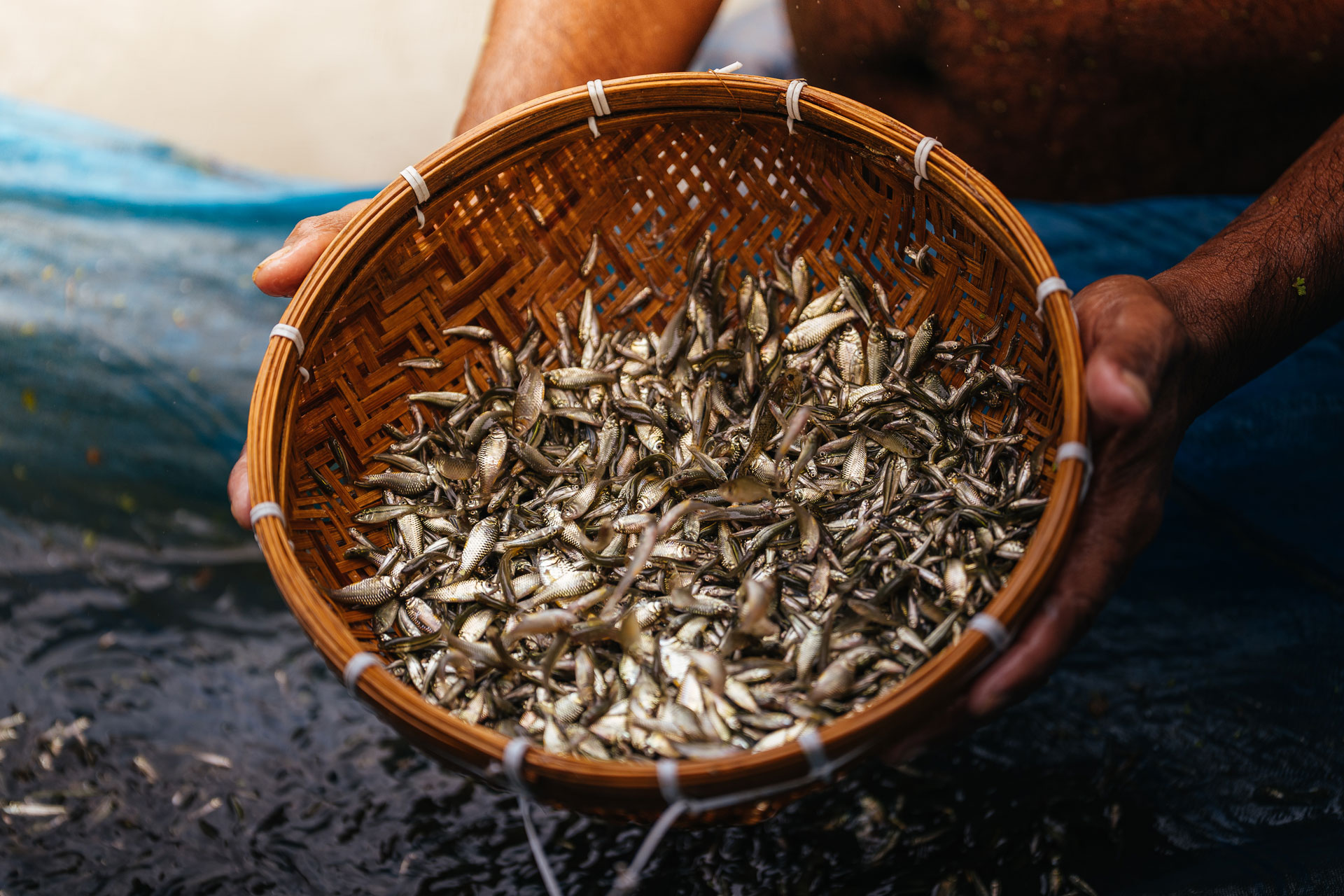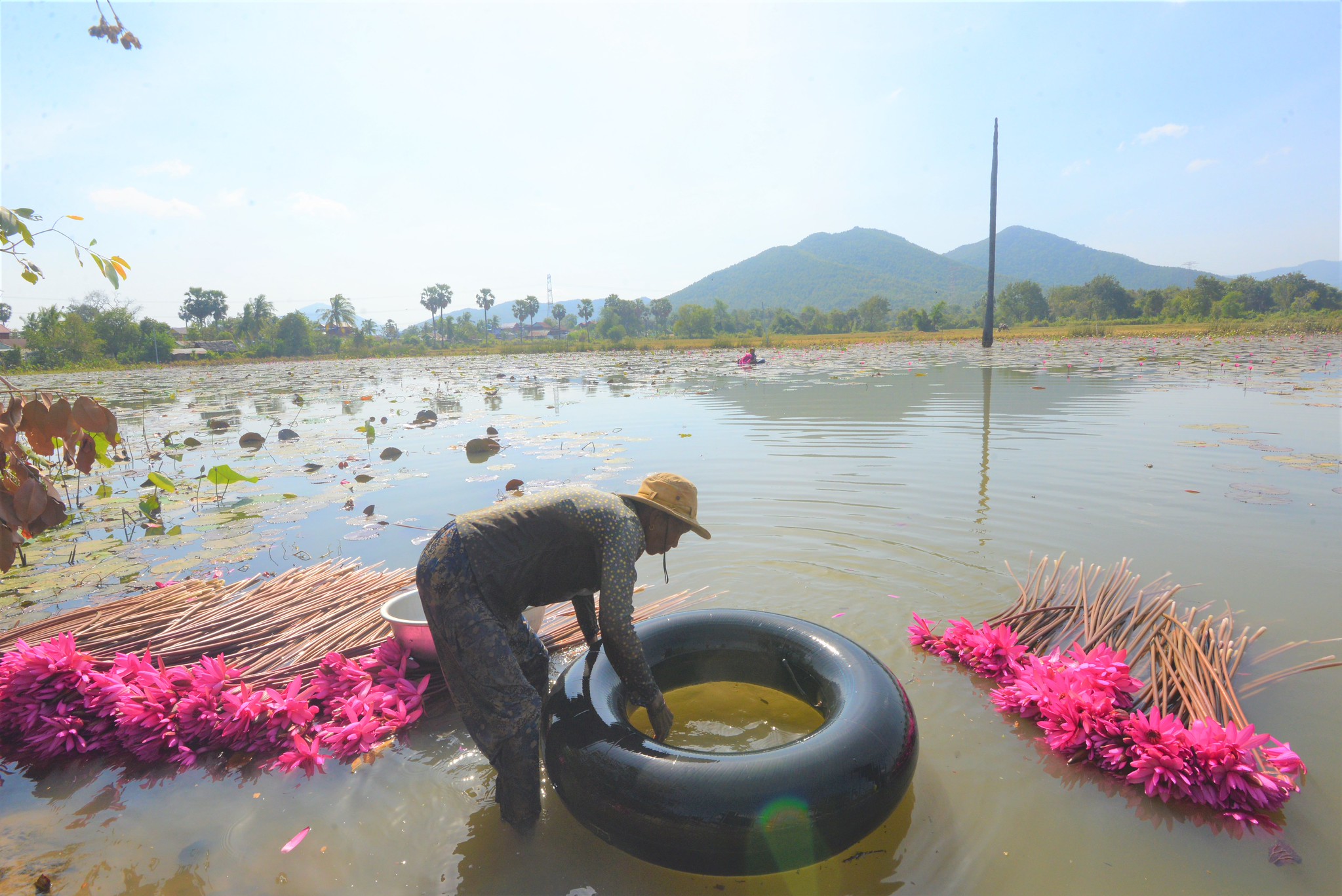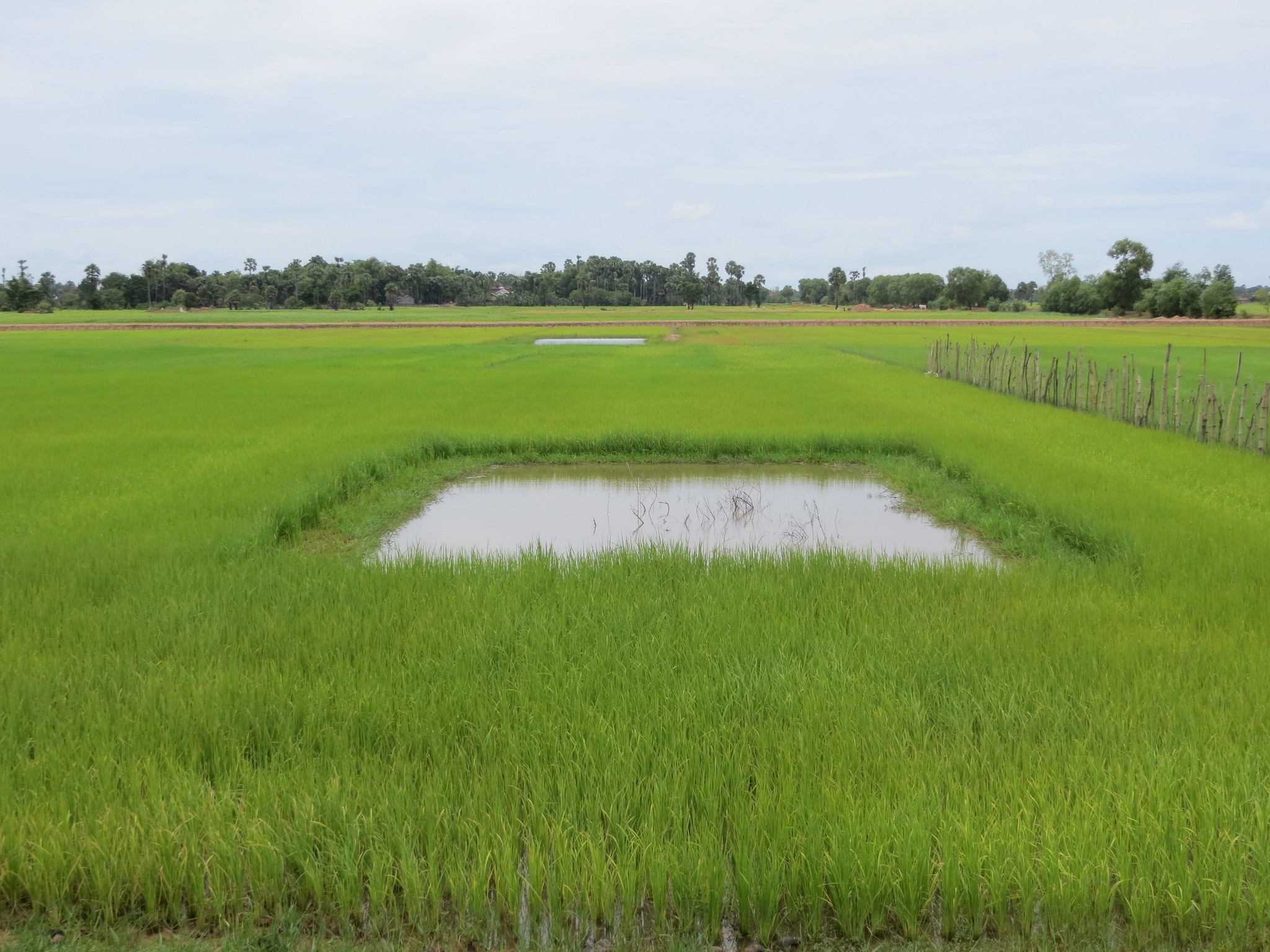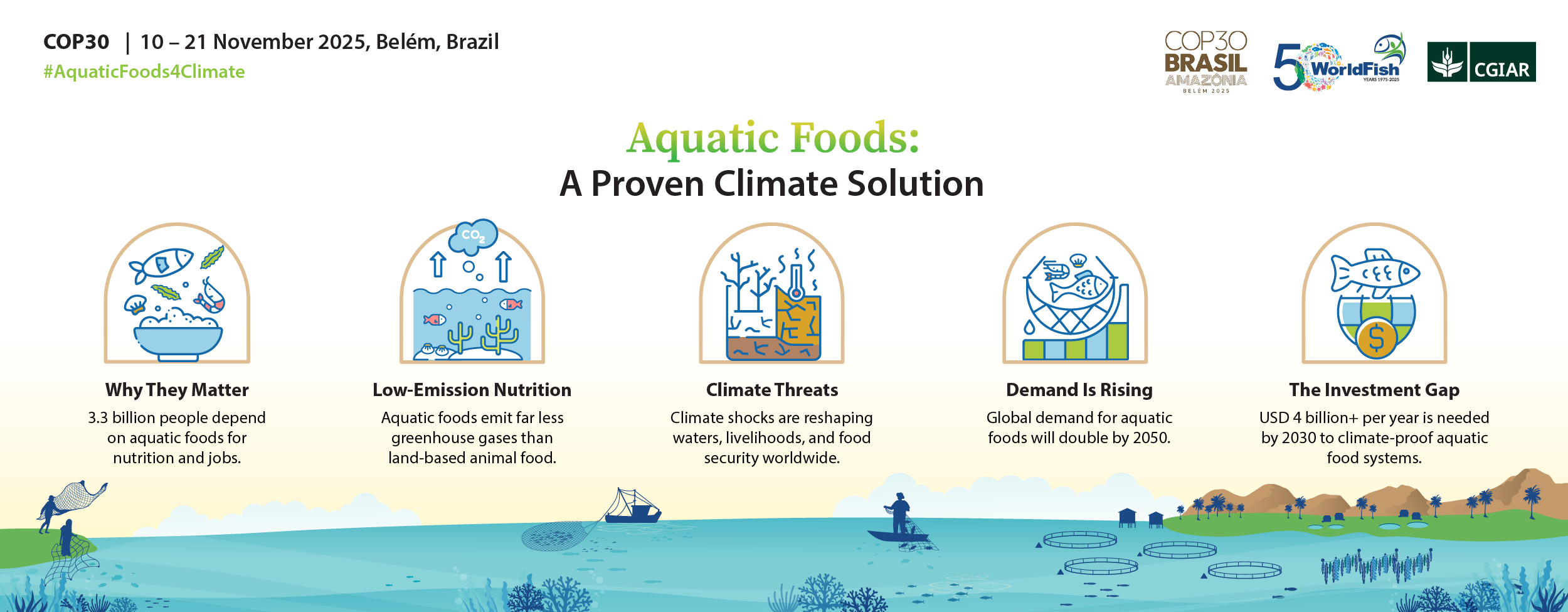WorldFish Key Engagements and Outcomes at COP30
COP30 marked a turning point for aquatic foods in global climate discussions. In Belém, fisheries and aquaculture were no longer peripheral topics but part of the core conversation on climate action, food systems, and nature.
This shift reflects years of growing momentum, driven by ocean advocacy and increasing recognition that climate solutions must include how food is produced, distributed, and consumed. At COP30, that work gained real traction.
Aquatic Foods Move into National Climate Action
Countries are increasingly treating fisheries and aquaculture as core climate issues. Across COP30 events and pavilions, national and local governments, fisher organizations, and research institutions presented solutions that are ready to scale.
The new round of national climate plans (NDC 3.0) is beginning to take shape, and the pattern is encouraging. Well over half of ocean states now include fisheries and aquaculture in their adaptation plans, and around a quarter are also identifying mitigation objectives.
At a WorldFish co-hosted event in Belém, governments shared concrete plans for aquatic food climate action:
- Brazil outlined a national sustainable aquaculture plan and expanded support for artisanal fishers.
- Cambodia is strengthening community fisheries management and protecting the Tonle Sap system.
- Fiji is restoring coastal habitats and rolling out renewable energy for fisheries infrastructure.
- Mexico is integrating aquatic foods into its Sustainable Ocean Plan.
- Several African countries are directly linking small-scale fisheries and climate-smart aquaculture to food security and coastal protection in their NDCs and national adaptation plans.
Regional bodies are moving as well. Pacific countries are preparing for shifting tuna stocks, while the 19 member states of the High-Level Panel for a Sustainable Ocean Economy are advancing blue food transformation in their next work plan.
From Ambition to Implementation
WorldFish’s role at COP30 focused on helping turn ambition into action by providing evidence and practical guidance. This includes the release of guidelines for incorporating aquatic foods into national climate strategies in 2024 and, ahead of COP30, a series of country deep dives in Ghana, Indonesia, Mexico, and Vietnam. These analyses highlight where fisheries and aquaculture can strengthen national adaptation and mitigation plans.
WorldFish also contributed to a new Pacific Community (SPC) analysis on climate vulnerability in fisheries and aquaculture, launched during COP30.
Implementation through collaboration was a strong theme in Belém. The COP30 Action Agenda brought together solutions, case studies, and initiatives at the intersection of nature, food systems, and climate change. WorldFish is working with FAO through its Plan to Accelerate Aquatic Foods as Climate Solutions to support this collective effort.

Key Themes Emerging from COP30
Across COP30 discussions on blue foods, several themes consistently emerged:
- Small-scale fishers and farmers are central to climate resilience, with co-management and secure rights strengthening both ecosystems and livelihoods.
- Better data and stronger coordination across ministries are essential to align climate action with realities on the ground.
- Financing remains the critical bottleneck, with less than 1 percent of global climate finance currently reaching aquatic food systems.
Innovations Ready to Scale
At COP30, WorldFish highlighted innovations already delivering results. These include nature-based aquaculture approaches such as integrated multi-trophic aquaculture (IMTA) and rice–fish systems, climate-resilient species and seed systems, and locally led adaptation and resource management models.
WorldFish also showcased digital tools such as Peskas and the Blue Resilience climate information platform, alongside value-chain innovations like solar-based processing that reduce losses and expand access to nutritious food. Many of these approaches are now scaling nationally through government partnerships.
For an overview of these approaches, see Aquatic Foods as Climate Solutions: Ready-to-Scale Innovations for Resilient and Low-Emission Food Systems.

Moving from Pledge to Progress
COP28 was a landmark moment that finally placed food systems adaptation at the centre of the climate agenda, drawing commitment from 159 countries to integrate food systems adaptation in their national climate action plans.
COP30, the thirtieth Conference of the Parties of the UNFCCC, being hosted in Belem, Brazil, is all about implementation and inclusivity.
WorldFish is ready with a suite of evidence-based solutions that can not only help adapt smallholder farmers and fishers but also turn the climate challenge into an opportunity for inclusive growth and shared prosperity. For five decades WorldFish has worked with governments, partners and communities to turn science into practice, delivering aquatic food system solutions that protect food and nutrition security, livelihoods and ecosystems.
At COP30 we are showcasing a suite of evidence-based, investment ready innovations, that are scaling nationally and shaping global ambition.
Our Focus at COP30
Aligned with COP30’s call for climate action that ‘begins and ends with people’ and a ‘granary of solutions’ ready to implement, WorldFish will shed light on its people-centered aquatic food systems solutions and how they can be integrated into national climate action plans and food security strategies.
Below are some practical pathways for countries to advance their climate action, while reaping sustainable development benefits.
Advance Nature Based Aquaculture
Seaweed farming, integrated multi trophic aquaculture (IMTA) and rice–fish systems show how working with ecosystems strengthens resilience and productivity. In Cambodia, evidence from the CGIAR Asian Mega Deltas Initiative demonstrated that improved rice field pond management raised fish harvests by 67 percent while also enhancing biodiversity, water management and resilience to rainfall variability.
Scale Climate Resilient Species for Livelihoods and Nutrition
WorldFish’s work on artemia seed systems in Bangladesh is boosting hatchery performance and creating new income opportunities in saline prone coastal areas. Integrated agri-aquaculture systems, including rice–fish, homestead farming and pond polyculture, diversify production, safeguard nutrition and increase profitability for vulnerable households.
Support Locally Led Adaptation of Coastal Communities
Community driven aquaculture and sustainable fisheries management ensure solutions are equitable and durable. Initiatives such as IkanAdapt, ECHOFISH and community based resource management (CBRM) show how locally led innovations diversify incomes, strengthen resilience during climate shocks and protect biodiversity.
Deliver Climate Information Services
Digital platforms including Peskas, and the Blue Resilience platform provide real time data that helps farmers and policymakers anticipate risks, adapt early and inform national climate policy. Co-created with local knowledge, these tools strengthen resilience from village ponds to government decision making.
Build Climate Smart Aquatic Food Value Chains
Innovations in processing and solar technology reduce food loss and waste while expanding access to nutritious aquatic foods. Through initiatives such as the Asia Africa BlueTech Superhighway (AABS), solar dryers, and the development of fish powders and products, WorldFish is helping deliver more nutrition with less waste.
Invest in Better Performing Tilapia and Carp
WorldFish’s improved seed systems for tilapia, carp and small indigenous fish, are enabling sustainable aquaculture growth. By boosting productivity and profitability these innovations help meet rising demand for fish and support nutrition while reducing pressure on wild stocks.

Meet us in Belém

Michelle Tigchelaar
Impact Area Lead, Climate and Environmental Sustainability,
WorldFish
Events & side sessions
Explore our events and engagements at COP30
Resources
- WorldFish Annual Report 2024
- World Economic Forum op-ed - Why Africa’s growing aquaculture sector is worth investing in

